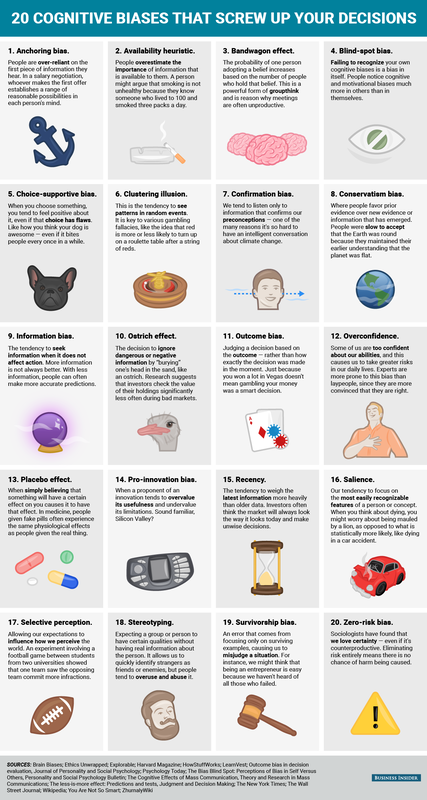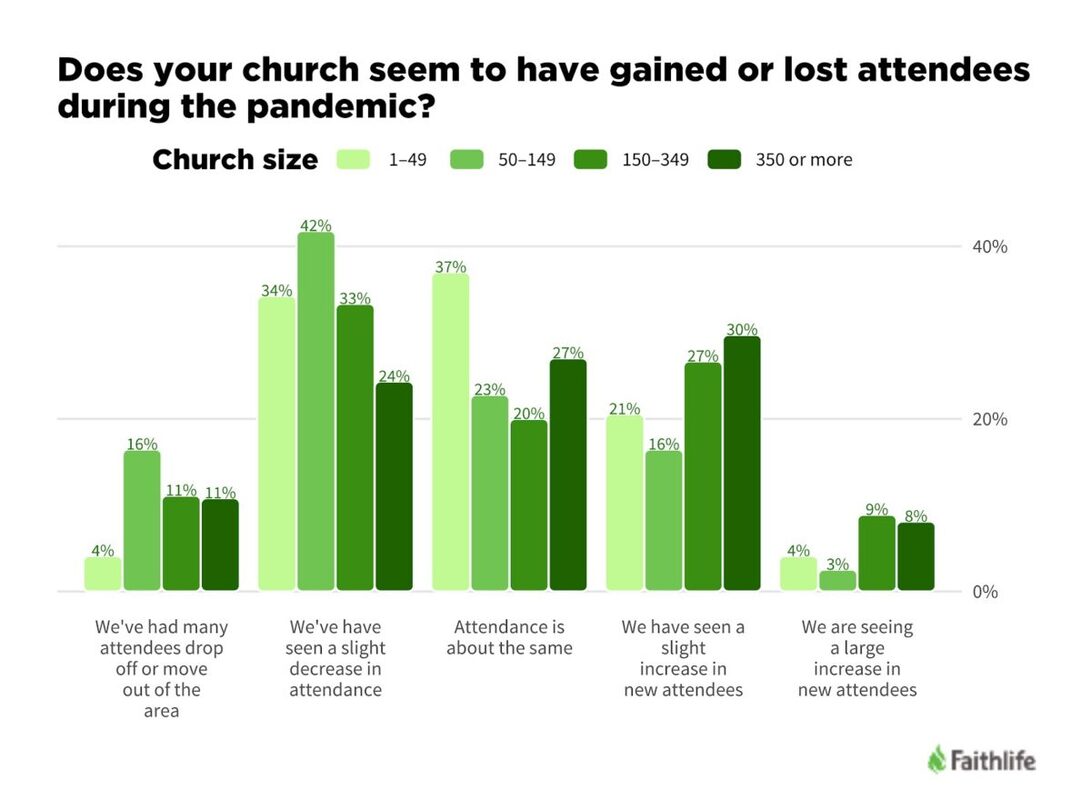|
Mashable is often a wonderful place to find tidbits of insights for churches that we never could quite expect. Today, they highlighted a new Qantas safety video called “Feels Like Home.” The interesting part is that it not only shows us something about videos, but provides an “ah-ha” moment that can relate to every element of how we communicate in the church.
Now, a little background. I fly somewhere between 75,000 and 90,000 miles per year (mainly for work.) In general, safety videos bore me to tears. I can state the script verbatim while reading Game of Thrones and jamming to the latest NF album. (Meaning multi-tasking to an extreme.) It has become the background noise of getting on a flight that everyone ignores. The latest trend in safety videos has been to try to make the humorous or engaging while showing the specific required safety elements. All of them take place on a place and include some other humorous elements like Delta’s “most Internet’y safety video.” Now, they have even become expected and part of the background noise on a plane and fades from our attention. Now, take a look at Qantas’ “Feels Like Home” safety video:
Not only does it provide the basic run of the mill safety information, but it shows you the wonderful scenery of Australia, brings a small tear to your eye at the end and provides some motivation to hop on a plane to go see it (likely through Qantas).
There are a couple themes that we should note:
Now, you may feel that I may be over-analyzing a simple safety video and making things up. Watch it again and then compare it with the Delta video. Which one would you watch again? Ah…I thought so. The same is true for church communication. Whether it is from a pulpit to an announcement on YouTube, how you capture someone’s attention, hold their interest and achieve your objective is a tough thing to do. We are constantly bombarded with information. They pay attention to what matters most. We need to earn it. So, what can we learn from the Qantas video?
Now, does every church announcement need to go through this filter? Nope, but the things that are most important do need to pass these eight steps. I would argue that it is just as important for a sermon as well as a video conveying the mission of the church. Churches must be clear in what they communicate. Otherwise the noise of the world will drown them out.
0 Comments
Many churches bemoan all of the changes that are happening in today’s society. Every time you stop to take a breath, something changes. Whether it is how teenagers communicate to one another or even what is the hottest TV show or song this week, everything seems to be moving in fast forward. Just once we start to figure things out, the ground shifts underneath or feet and we need to change again in reaction to these cultural waves.
While I personally feel this all of the time since I work in the technology sector, this is even being felt in our local churches. Worship styles and approaches sometime feel out of date even through the church just launched a contemporary service. Kids would rather watch a video during Sunday School than use traditional written materials. The Pastor uses an iPad to read the scripture verse instead of reading out of a Bible. People want to “tweet” during worship in addition to saying “amen.” Should we fight the cultural waves of change? The world has changed and there are a number of people in church who are not happy about it. They want to stop people looking at their cell phones in church, make sure the latest version of the United Methodist hymnal is in the pews and keep to the “tried and true” methods of the faithful that have worked in the past. In other words, they want to be a “surf break” against the cultural waves which are slamming our church and create a calm in which they can connect with God. There is nothing wrong with this desire. In a world where everything changes, we look for calm in some area of our life. There are many who believe that the church need to be this sanctuary in this storm. We can hunker down in this storm and seek peace in the breaking waves of life. The actions at General Conference of the United Methodist Church in 2012 and the consequent Judicial Council rulings show an extension of this desire to maintain the status quo. Our structures at all levels of the church reflect the best thinking from the 1960s and not 2010s. We are not alone…There are a number of industries fighting change and will become extinct because of it. One look at our living room television reveals that we are not alone in our desire to maintain the status quo. Today’s cable companies are trying desperately to maintain control our what we watch and how we watch it. Television advertising, 30 min and 60 min shows and even the idea of prime time television are all tied to the basic model that people will sit down and watch shows when they are aired. Companies like Time Warner and Comcast (and even Direct TV and Dish Network) make you buy blocks of channels to watch programming. Now enter Netflix and Hulu. They offer unlimited viewing on demand for under 10 dollars a piece. While it may not have every show, you can use is as a simple substitute for your expensive cable bill to meet 90% of your TV needs for under $20. (The only exception being live sports programming and there are ways to satisfy that as well with MLB.com and NFL.com). We are not that far away from the situation that we will be paying and watching our television content on demand. The reaction of many of the cable companies have been to dig in and try to maintain the current state of affairs Music and radio are in the same boat. We are moving to an on-demand world and yet they try to make people come to them, when and where they want and ingest their content in a particular way. The winners focus on the principles of their industry. For cable companies, it is providing killer content. Broadcasters want people to watch when they show it and interrupt their viewing with commercials every 12 minutes (so they can make money.) Netflix and Hulu understand that people want to see killer content when it works for them so they charge a rate and make the content available when they want. Principle vs. preference (for churches) Whether we care to admit it or not, we seek to do the same with the church and our content (called the message of Christ). We hold our services at a particular time and in a particular way and we feel that people need to come to us to hear the life saving message of Jesus Christ. We want things on our terms because it makes us feel comfortable. We feel the waves of change hammering around us yet we stand firm. Many believe that we should stand on principles and not allow the world to change us. We are standing firm for Christ, right? Here is the killer question: Are we (as the church) standing firm on the right principles or stuck on our preferences? Let’s take a look at a few… Jesus is God’s Son = Principle Worship styles = Preference (the organ was once considered the devil’s bagpipes) The Holy Trinity = Principle Use of hymnal (or screen) = Preference Serving the Poor = Principle Going on International Mission Trips = Preference Christ came to this world and upturned many of the rules the Jewish faith. Working on the Sabbath. Hanging out with the unclean. Drinking water with a Samaritan woman. Jesus took religious convention and turned it on its head. He had a very clear mission to reconcile God and his people. He focused on saving the lost and not about following the rules laid out by the religious authorities (many of which were layers upon layers of man-made rules on top of the scripture.) They were made with the best of intentions to keep the Jewish people from breaking God’s commandments. Instead, these rules turned into a straight-jacket for our faith and kept the church from moving forward to reach the least and the lost. The same is true today. Take some time to list out all of your church’s key principles and then ask yourself, “Is this really a principle or is this a preference?” Then back it up with Scripture and key church writings (meaning the Apostle’s Creed and not the Bishop’s latest letter.) If an unbiased person looking at the evidence would not say it is a “principle,” then you may need to ask yourself why you are holding onto it so strongly. Many times, it is our emotions trying to convince ourselves it is more important than what it really is or we want to conform God and Jesus to our worldview instead of the other way around. It is time to get clear on our calling! When we strip our thinking from our preferences and focus on God’s key principles, we can surf the cultural waves of change while staying committed to God. If our goal is to make disciples, what do we need to attract people to God’s message of reconcilation and disciple them in the faith. It may not be on a Sunday morning at 11am singing Hymn #256. It may be at a recovery group being held in a community library or a bible study in a coffee shop (or even a bar (gasp!)) If someone commits their life to Christ and grows as a disciple in the faith, do you really think God cares about anything else? We as the church need to get very clear on our calling (to make disciples) and then be willing to surf the waves of the world to be able to achieve it. We need to leave behind our “preferences” on how we like to reach them. At the end of the day, we cannot force people to like what we like and do things the way we want to do them. We need to attract people to the message of Christ and connect with them in a way that they can relate with and connect to. Jesus did it. Why shouldn’t we? To learn how to craft programs that surf the cultural waves, check out the article “How does picking surfboards look a lot like creating church programs?” Church assessments are hard. It is that simple. All of us want to see both ourselves and our churches in the best possible light. It is kind of like when our jeans don’t fit after the Thanksgiving and Christmas holidays. We can try to say they shrunk in the wash or we can admit to ourselves that we may have indulged a little too much. It is not until we look at ourselves in the mirror with a critical eye that we can admit we may have overindulged over the holidays. The same is true for churches. When was the last time your church looked into the mirror? Many churches complete their charge conference paperwork (if you are United Methodist), and then attempt to rationalize what happened in the previous year if things did not go well. Think about your own church situation and ask: how do we explain our church growth or our decline? (And with 94% of churches in decline, it usually is the later.) Here are a few explanations: Growth – We are so friendly here. Decline – It is the megachurch down the street that just puts on a show. Growth – Our pastor preaches a good sermon every week. Decline – It is societies fault that people don’t want to come to church. Growth – Our choir is amazing. Decline – Kids sports are on Sunday now. It isn’t our fault. Growth – People love our children’s programs. Decline – It isn’t about numbers. It is about how strong of disciples we are. Now, some of these explanations may provide some insight into why there is growth or decline in your church. Your pastor may be good at preaching. The megachurch may be drawing away members. People may love your choir or children’s programs. There may be people drawn away by competing events. The fundamental issue is that none of these explanations get to the WHY! The core issue with church assessments What is the core issue with church assessments? It is us. Yep, it is true. Let me explain. We make thousands of decisions each day. Whether it is what we want to eat for breakfast or why someone cut us off, our brain uses our experience, our emotions and our perceived patterns to help us accelerate the decision making process. It is the only thing that keeps us able to function in our daily lives, especially in today’s fast pace world. To help reduce the workload on your brain, it uses patterns to recognize what is happening and what to do about it. While it keeps us from going crazy, sometimes our own frame of reference prevents us from objectively seeing a situation and evaluating it. Here is a graphic published in the article, “20 cognitive biases that screw up your decision making” by Business Insider UK to provide an overview of JUST SOME of the many biases we need to think through to objectively analyze a situation. The first step in church assessments.
Lying to ourselves, whether as an individual or as a church body, is not that hard. Our bias gets in the way. Ask any church that has not grown. We are professionals at explaining away our declining church attendance and pointing to a set of facts that make it “not our fault.” We will then go on and explain that we are growing spiritually and that it is OK. I have two words for you: “Not biblical.” Stop making excuses. The Great Commission and the Great Commandment make it very clear that it is our job to make disciples for the transformation of the world. That includes bringing new people to the faith, growing their faith and sending them back out into the world to re-present Christ. I believe any church can grow. I have seen it. I have written about it. I have experienced it. If the church can grow under extreme presecution (whether in Acts 2 or today in China), it can grow anywhere. If a urban church of 35 (and everyone over 65) can grow in 3 years to a church of 150 and serve over 5,000 meals a year with zero budget, it can grow. If your church is just 3 families and 12 people, it can grow. The question is…are you willing to do whatever it takes with God’s power to do it. The key to taking to first step is to answer this question: “Are we willing to take an objective look at our actions, our attitudes, our community, our calling, and our capabilities to live fully in the Great Commission and the Great Commandment?” A number of years ago, I was asked to fill the pulpit for a friend in Middletown, Ohio. It was a small “town & country” church struggling through a transitional period. They was in a slow decline and wondered what to do next.
At the time, I preached a sermon called, “Stop the spiritual pity party.” Rereading it now in the middle of the COVID pandemic, it resonates with me on how God can speak to us in stillness. We need to take a step back from ourselves and ask “what are we doing here?” The Power of Questions Questions are wonderful things. Whether we want to or not, we answer questions almost automatically. I can ask a question like, “what is your favorite food?” and I bet a picture of it flashed in your head and your mouth may have even started watering. I can ask things like “Will the Steelers win today?” or “What is your favorite color?” and wham…you have the answer. Throughout the Bible, God uses questions to focus our attention on what matters most. The first question God asks to humanity is “where are you?” It shows God’s deep desire to be in relationship with us and his willingness to chase after us. Finding yourself in a tough spot As we are in the middle of COVID-19, the story of the prophet Elijah in 1 Kings 19 is especially important to help guide us. Elijah found himself in a very tough spot and, in a moment of despair, just wanted to lay down and die. Elijah emerges on the scene after the tribes of Israel split into the Northern and Southern Kingdoms after King Solomon’s death. Ahab, the son of the King of Israel (the northern kingdom) married Jezebel, a priestess of Baal, and the majority of the people of the north started worshipping Baal. Worshipping Baal often involved ritual prostitution, child sacrifice and other acts strictly forbidden by God. To make a long story short, Elijah challenges Ahab to turn away from worshipping Baal, it stops raining for 3 years. Elijah strolled back into town and throws down a challenge between Baal and God. In the end, Elisha calls down a pillar of fire and it results in 850 extra-crispy prophets of Baal and Asherah. God shows his power in a mighty way. Elijah just won a huge victory over Baal. God ended the drought he brought upon them because of their idolatry. Elijah now comes back to Jezreel, where he expects Ahab and Jezebel to repent, surrender or accept defeat. Elijah should be on the mountaintop. He just showed that God is God and Ba’al is not. The people of Israel start turning away from Ba’al and back toward God. Roll credits, the movie is over right? Nope! Instead, Jezebel threatens to kill Elijah, Elijah runs away, hides, wants to die and gives up hope. He goes out into the wilderness to die. In verse 4 he says, “It is enough; now, O Lord, take away my life, for I am no better than my ancestors.” Elijah’s pity party and God’s desire for renewal. Some would say that Elijah was in a funk. I would say that Elijah was having a spiritual pity party. He basically believed that everything he did was useless. He believed God couldn’t do anything with it. He lost faith and hope that God could work through it. He gave up. You see, the story could end right here. God could abandon Elijah and pick another person to carry on his mission. He could have said, “OK, you give up. I’ll go find another prophet.” But he didn’t. God sent an angel (or in some translations, a messenger) to care for him and take care of his physical needs. He gave him food, water, and even a safe place to go so he could get refocused on his mission. God took him on a journey for 40 days and he ended in a cave on Mt. Horab. God provided for his physical needs and isolated him so he would be willing to listen to God instead of his own self-pity. Hearing God in Silence… Now, Elijah was ready to listen to God. Elijah does not hear God in a windstorm, earthquake or fire, but it a sheer silence. And God comes back with a question…”What are your doing here, Elijah?” This question forces us to examine our intent. We are forced to answer what we stand for and what we are about. We are forced (almost automatically) to think about the WHY we are where we are and WHY does it matter. It is only after Elijah answers this question, that God can give him instructions and he can get back on track. Bringing it to the present… You see, Elijah’ story is not unique. We all go through periods of depression, loss of hope and even personal pity parties. We become overwhelmed with what life has thrown at us and we are ready to give up. We want to throw in the towel, call it quits and go live in our own proverbial cave for the rest of our lives. Even me… Our time in a cave We all experience the highs and lows in life. It is much more a matter of how we handle it. Kim and I felt this when my wife received her first-time solo appointment. During her time as a young associate pastor, we were part of an amazing ministry that grew from 250 people to over 800 in less than 3 years. We felt like we were serving God in powerful ways and could not wait for our next adventure. We had very high hopes for based on what I saw with other pastors in the same situation. She was seen as an “up and coming” successful pastor and paid her dues. My expectations, based on my corporate experience, would be that we would be placed in a nice congregation out in the suburbs as the next logical step in her career. February, March, April all came and went. May finally rolled around and I lost hope. The District Superintendent finally called and told Kim her appointment. She was sent to East Price Hill in Cincinnati to a little church called Elberon United Methodist Church. It was located in a very rough part of town nicknamed “Crack Hill” and the church as near death. Elberon UMC had about 35 people in attendance each week, all over the age of 65. The youngest member of the congregation was retiring from teaching that year. Their finances were a shambles. The building had plenty of issues and the church was only open one hour a week for worship. In my estimation, the church had about six weeks to live. I was mad. I was upset. I thought we got ripped off. Other pastors got better appointments that Kim deserved and I was torqued at God. I was mad at the United Methodist system for sending us to a dying church with no hope of survival. I tried to be upbeat about it, but we came home after the first Sunday and cried. It felt hopeless. I think Kim was determined to make it work, but I was not really on-board. In other words…I was having a full on pity party. God had other plans. Much like Elisha, we ran away. We already had a vacation scheduled and for three weeks were saw amazing sites in Egypt, ate great food and had tome to reconnect as a family. We were all a little overwhelmed with the transition, and this gave us all an opportunity to get recharged and listen to God outside of the busyness of our lives. While we had some downtime on our trip, I was reading my bible and asking God why he sent us to Price Hill. The emotion was out of it, but I wondered what his purpose was in this situation. I ended up reflecting on my favorite verse in Psalms 46:10 “Be still, and know that I am God.“ I had to ask “What are we doing here?” Was I here to serve God or glorify ourselves? Was I here to have an easy ministry or to serve the least, the last and the lost? It led me to question if I was willing to let God be God and trust him to help the church be the church. It wasn’t about my or my wife’s ability to make things happen. It was about listening to God’s still small voice, and being willing to following the instructions as they are given. We came back and God did amazing things at that little church. The church grew from 35 to almost 150 in two years. We held outreach events where over 1,000 people came to the church parking lot. We served hundreds of meals a week to those who were hungry. We taught hundreds of kids the stories of the Bible and how Jesus loved them enough to die for them. God answered our question of “what are you doing here?” We were bringing hope to the heart of Price Hill. What about you? Think about yourself for a minute. When have you been in a spiritual funk? When have you been scared, retreated from the world and wanted it all to go away? The current pandemic has stretched us all to our limits. The political unstability and the constant fighting has wearied all of us to a point of hopelessness. When that happens, are you willing to take a step back and feed yourself physically and spiritually to recharge your batteries so you can listen to God? Are you willing to ask yourself the question, “what are you doing here?” We all go through spiritually valleys in our lives. It is up to us if we want it to be a time to rest, recharge and renew our commitment to God or stay stuck in it for a long period of time. What about your church? We have been involved with hundreds of United Methodist Churches across the conference and the nation. Almost 75% of United Methodist Churches are in decline. Before the pandemic, many blame the changing culture, mega-church movement, or people busy schedules on why people do not come to church. It was a bad pastor or set of pastors. People cast blame and believe there is no way they can grow again. The COVID-19 pandemic now is amplifying this decline. David Kinnaman, president of the prominent Christian research organization Barna Group, as many as one in five churches could permanently close as a result of shutdowns stemming from the coronavirus pandemic in an interview with NPR in August 2020. As the pandemic stretches on, some researchers think that up to 40% of the churches could shut down in the next few years. Sorry to say, I think it’s a cop-out, a pity-party and an excuse. Over the past 2,000 years, the church has survived persecution, paganism, massive shifts in technology, plagues, wars, and direct attacks by competing ideas. Through everything, the church has survived and thrived and grown to be the world’s largest faith. HOW? By staying true to its call. Whether is was the early church that saved 3,000 people in one day, Paul’s church plants in very hostile environments (called Gentile cities in Asia (now Turkey and Greece)), missionaries in Africa, or Saddleback Church (which started with two people), they grew in pretty foreign or hostile places to the Gospel. Why? It wasn’t because they had a ton of money, hit the “demographic” lottery or had a rock-star pastor. It was because they focused on God and God’s calling. In other words, they answered God’s question “WHAT ARE YOU DOING HERE?” Sometimes, we need to take a time out and get refocused on “what we are doing here?” Are we here to be a country club or hospice for the saints or are we here to serve the community? Are we here to be a small, comfortable country church where we all know one another, or are we actively seeking out and inviting in all those who need God’s grace and love in their lives? Which one do you think God is calling for this church to do in a still small voice? We sometimes need to take advantage of “the land between” to recharge and determine how we can most effectively follow God’s call. But we can’t stay there forever. We need to leave our cave and go back into the world, so we can save it. We need to get clear on our church’s unique calling by God to serve our community. We must be willing to sacrifice our own preferences, desires and comfort for the sake of others. So …”Are you willing to do it?” If we are, here are a few questions to help guide you:
2020 has thrown a major curveball into churches ability to grow. most are just trying just to survive. We have been pared down to the basics: worship streamed on-line through Facebook live, some church meetings through Zoom and maybe providing a method for on-line giving. According to a Faithlife survey held in Fall 2020, only 35-40% of churches are growing in today’s environment. The rest are holding their own or declining in attendance. The growing churches embraced digital tools to create community and worship together. The others cut back to the essentials, waiting for this pandemic to be over. The best used the time to not only succeed now, but prepare for the day we can worship together again. The Focus Created by Crisis
Just today, the Pastor of the church we attend here in Massachusetts, highlighted that the rough times can help us focus on what we need to do rather than the good. He quoted C.S. Lewis, from his book, “The Problem of Pain” in stating: “We can ignore even pleasure. But pain insists upon being attended to. God whispers to us in our pleasures, speaks in our conscience, but shouts in our pains: it is his megaphone to rouse a deaf world.” All of 2020 and the beginning of 2021 has stripped away the illusions and the lies we have told ourselves in our comfort. In our personal lives, it may have been around our health, our relationships or even our beliefs of society. Yet, after the strain of living in quarantine for months on end, we faced depression, weight gain, fraying relationships with family members and so on. We saw government ineptitude, lies from our elected officials and even a riot in the Capitol. Conspiracies and counter-conspiracies abound with people pointing the finger at one another that it is their fault. We find ourselves a few days before the Inauguration wondering what is next for our Republic. It is my belief that we need to strip back all of the rhetoric and get back to the core of who we are as a nation and then build back into a nation we can all be proud of, with “liberty and justice for all.” We need to build good habits as a country. Telling the truth. Listening to one another. We also need to cut actions that do not serve us. Reexamining Our Habits I learned personally about cutting things out of my life that did not serve me,. Throughout my life, i struggled with my weight. Every year, it seemed to creep up and I felt powerless to stop it. I just resigned myself that I would be fat. The pandemic hit the U.S. right as we got back from a trip to Rwanda and the Congo.While on the trip, we hiked through the highland jungles in the Congo to see silverback gorillas. While it was an amazing experience, it kicked my butt hiking up and down the mountains for 4 hours. I was exhausted and a little disappointed in myself. I started to look at my health in the big picture and I was not happy with where I was at. It was a little bit of a wake up call for me to say “enough.” Basically, I had enough pain in my life to be willing to make changes. It involved taking a step back and evaluate my diet, my activity level, my sleep, my stress and my habits. The “lockdown” created the room in our lives to slow down and take stock on what was working and what was not. It started with changing little things that added up. Kim is a spectacular cook and starting using cooking spray instead of olive oil to cook. Eating fresh fruit with meals. Going for a short walk during lunch (even if it was only 20 minutes). Choosing fish instead of beef when we went out. Once we got those things out of the way, I needed to address some bigger issues. Avoiding bad for you foods that I love like pizza. Going to see a Doctor about sleep issues and getting them solved. Addressing my relationship with food and how it relates to my childhood. All in all, I lost 45 pounds in 2020. The little changes started positive momentum for me and I lost the first 20 pounds. The next 25 were harder because I needed to make longer term changes in myself. It involved a lot of introspection, I still have a while to go, but I am happier and healthier for it. It really involved taking a hard look in the mirror and asking if my habits and practices were moving me toward my goals or not. It required stripping away all of the excuses (like I have a slow metabolism) and facing facts. I have to make an active choice to be healthy and CHOOSE it every day or bad habits will slowly weigh me down (in this case, literally). Church Health is a Choice Churches are the same way. We meet with church leaders across the country and many are quick to blame the culture, the megachurch down the street or the Sunday soccer games on their decline. We may feel that there is nothing do about the slow decline of our congregation and that someday (maybe even soon), we may need to close our doors. I am here to stay that it is nothing but an excuse, just like I had about my weight gain. The church survived for the past 2,000 years despite persecution, paganism, corruption and direct attack by competing ideologies. Yet today, the church flourishes in the places it is most under attach including China, Africa and Latin America. It is where we are fat and comfortable in the United States that we are lured away from Christ a little bit at a time. We need to face facts. We can either help the church thrive or we can let it die. We can be willing to put away our preferences and reach out to our communities in a relevant way or we can stay comfortable in our holy huddle. We can be willing to sacrifice ourselves or Christ or slowly allow our congregation to fade into nothingness. It all starts with a choice. In the words of “Red” in Shawshank Redemption, we can “get busy living or get busy dying.” It is our choice. Choose good habits for your church. Here is a brief outline of how to get started. Over the next few weeks, I am going to try to write a post on each action to help you move forward. I will come back and cross-link the posts, but this should give you something to get started.
With the church coming out of the pandemic, now is the perfect time to strip our programs to the core, assess what works and create new ways to reach people for Christ. The question is not if we can do it, but do we have the courage to get started. On Monday, we focused on how churches need to engage with the waves of cultural change that seem to be hitting us from all directions. We need to ask: is this a preference or is it a principle of doing ministry? Now that we are clear on our ministry principles, here comes the big question: what should we do to ensure our church programs are effective?
Picking the right surf board. When we lived in Hawaii, I constantly heard the debates about what surfboard was the best. I heard people almost willing to come to blows about what the best places to surf are, what boards are best and where you could catch the killer wave. In the end, they were all right and they were all wrong because they forgot about a key principle. Here is the key: The best wave and best board is the one you can actually ride. While you may say “duh” at that, how many times to we buy a surfboard, skis, or hoverboard based on what we think is cool and then end up with something we crash and burn with. The same applies for computers, cameras, cooking appliances and even exercise machines. We all have high hopes but unless we get clear on what we can do and ensure we have the motivation to do it, it really doesn’t matter. Which one is right for me? Going back to the surfboard example, we need a way to evaluate it. When looking for the right surfboard, there are a couple questions to ask:
Using several key questions can make sure that you get the right board for you and get you off to the right start to catch a wave. So…what the heck does this have to do with church programs. Church Programs = Cultural Surfboard Church programs (and I use that word loosely) follow the same thought process.
Churches constantly dream up of ideas for new programs to support their mission and often fail. I believe this is because they did not properly evaluate it in the context of their objective, skills and environment to ensure it can be successful before it ever starts. Instead, we get so caught up with someone “having an idea” that we do not want to discourage them and we never consider the cost of doing it and the impact of wiping out on the church mission. I was asked to stand in Pastor Jack Marsh at Pleasant Ridge United Methodist Church in Middletown, Ohio. Pleasant Ridge is a small "town and country" congregation in southwest Ohio. Jack is an interim pastor who is helping them through a transitional period and assisting them discern God's call for their congregation.
While the sermon likely changed when I gave it, I reread through it and it still spoke to me. We all need to take a step back from ourselves and ask "what are we doing here?" Sermon - “Questions God Asks Us: What are you Doing Here?” 1 Kings 19:1-18 (NRSV) 1Ahab told Jezebel all that Elijah had done, and how he had killed all the prophets with the sword. 2Then Jezebel sent a messenger to Elijah, saying, “So may the gods do to me, and more also, if I do not make your life like the life of one of them by this time tomorrow.” 3Then he was afraid; he got up and fled for his life, and came to Beer-sheba, which belongs to Judah; he left his servant there. 4But he himself went a day’s journey into the wilderness, and came and sat down under a solitary broom tree. He asked that he might die: “It is enough; now, O LORD, take away my life, for I am no better than my ancestors.” 5Then he lay down under the broom tree and fell asleep. Suddenly an angel touched him and said to him, “Get up and eat.” 6He looked, and there at his head was a cake baked on hot stones, and a jar of water. He ate and drank, and lay down again. 7The angel of the LORD came a second time, touched him, and said, “Get up and eat, otherwise the journey will be too much for you.” 8He got up, and ate and drank; then he went in the strength of that food forty days and forty nights to Horeb the mount of God. 9At that place he came to a cave, and spent the night there. Then the word of the LORD came to him, saying, “What are you doing here, Elijah?” 10He answered, “I have been very zealous for the LORD, the God of hosts; for the Israelites have forsaken your covenant, thrown down your altars, and killed your prophets with the sword. I alone am left, and they are seeking my life, to take it away.” 11He said, “Go out and stand on the mountain before the LORD, for the LORD is about to pass by.” Now there was a great wind, so strong that it was splitting mountains and breaking rocks in pieces before the LORD, but the LORD was not in the wind; and after the wind an earthquake, but the LORD was not in the earthquake; 12and after the earthquake a fire, but the LORD was not in the fire; and after the fire a sound of sheer silence. 13When Elijah heard it, he wrapped his face in his mantle and went out and stood at the entrance of the cave. Then there came a voice to him that said, “What are you doing here, Elijah?” 14He answered, “I have been very zealous for the LORD, the God of hosts; for the Israelites have forsaken your covenant, thrown down your altars, and killed your prophets with the sword. I alone am left, and they are seeking my life, to take it away.” 15Then the LORD said to him, “Go, return on your way to the wilderness of Damascus; when you arrive, you shall anoint Hazael as king over Aram. 16Also you shall anoint Jehu son of Nimshi as king over Israel; and you shall anoint Elisha son of Shaphat of Abel-meholah as prophet in your place. 17Whoever escapes from the sword of Hazael, Jehu shall kill; and whoever escapes from the sword of Jehu, Elisha shall kill. 18Yet I will leave seven thousand in Israel, all the knees that have not bowed to Baal, and every mouth that has not kissed him.” The Power of Questions Today we are continuing our sermon series on “Questions God Asks Us.” Questions are wonderful things. Whether we want to or not, we answer questions almost automatically. I can ask a question like, “what is your favorite food?” and I bet most of you already answered me in your heads. I can ask things like “Will the Bengals win today?” or “What is your favorite color?” and wham…you have the answer. Throughout the Bible, God uses questions to focus our attention on what matters most. Last week, you focused on “What is Your Name?” Names are powerful things because they publically declare who we are. Today we are focusing on another question asked in 1 Kings to the prophet Elijah. The rise of Elijah For those of you not familiar with Elijah, he is considered one of the greatest prophets, considered only second to Moses. He showed up on the scene with little fanfare, shortly after the splitting of the tribe of Israel into the Northern and Southern Kingdoms after King Solomon’s death. He first showed up when Ahab, the son of the King of Israel (the northern kingdom) married Jezebel, who was a priestess of Baal and a princess of the King of Phoenicia (now Lebanon & Syria). The majority of the people of the north turned away from God and started worshipping Baal. Baal was the Canaanite god responsible for rain, thunder, lightning, and dew. Worshipping Baal often involved ritual prostitution, child sacrifice and other acts strictly forbidden by God. To make a long story short, Elijah challenges Ahab to turn away from worshipping Baal, it stops raining for 3 years and then Elijah comes back, proposes a challenge between Baal and God. In the end, it results in 850 extra-crispy prophets of Baal and Asherah. God shows his power in a mighty way. Now we come into our bible reading for today. Elijah just won a huge victory over Baal. God has ended the drought he brought upon them because of their idolatry. Elijah now comes back to Jezreel, where he expects Ahab and Jezebel to repent, surrender or accept defeat. Elijah’s pity party Elijah should be on the mountaintop. He just showed that God is God and Ba’al is not. The people of Israel start turning away from Ba’al and back toward God. Roll credits, the movie is over right? Nope! Instead, Jezebel threatens to kill Elijah, Elijah runs away, hides, wants to die and gives up hope. He goes out into the wilderness to die. In verse 4 he says, “It is enough; now, O Lord, take away my life, for I am no better than my ancestors.” Some would say that Elijah was in a funk. I would say that Elijah was having a spiritual pity party. He basically believed that everything he did was useless. He believed God couldn’t do anything with it. He lost faith and hope that God could work through it. He gave up. Physical Restoration comes before Spiritual Renewal You see, the story could end right here. God could abandon Elijah and pick another person to carry on his mission. He could have said, “OK, you give up. I’ll go find another prophet.” But he didn’t. God sent an angel (or in some translations, a messenger) to care for him and take care of his physical needs. He gave him food, water, and even a safe place to go so he could get refocused on his mission. God took him on a journey for 40 days and he ended in a cave on Mt. Horab. God provided for his physical needs and isolated him so he would be willing to listen to God instead of his own self-pity. Hearing God in Silence… Now, Elijah was ready to listen to God. Elijah does not hear God in a windstorm, earthquake or fire, but it a sheer silence. And God comes back with a question…”What are your doing here, Elijah?” This question forces us to examine our intent. We are forced to answer what we stand for and what we are about. We are forced (almost automatically) to think about the WHY we are where we are and WHY does it matter. It is only after Elijah answers this question, that God can give him instructions and he can get back on track. Bringing it to the present… You see, Elijah’ story is not unique. We all go through periods of depression, loss of hope and even personal pity parties. We become overwhelmed with what life has thrown at us and we are ready to give up. We want to throw in the towel, call it quits and go live in our own proverbial cave for the rest of our lives. Even me… My cave in Mariemont… My wife and I went through the same thing about six years ago. She was a seminary student as Asbury Theological Seminary and an Associate Pastor at Epiphany United Methodist Church in Loveland, Ohio. During her time there, we experienced amazing ministry and witnessed explosive growth in the size of the congregation. It started with about 250 people in worship and in less than 3 years, the church grew to almost 800 people attending their services. Kim and I were deeply involved in ministry and felt like we were really serving God in powerful ways. It was time for Kim to get reappointed and we had high hopes. She was seen as an “up and coming” successful pastor and I was convinced we would get a killer appointment. She paid her dues, worked very hard and I thought we would get a nice congregation out in the suburbs as the next logical step in her career. February, March, April all came and went. May finally rolled around and I lost hope. The District Superintendent finally called and told Kim her appointment. She was sent to East Price Hill in Cincinnati to a little church called Elberon UMC. Elberon UMC has about 35 people in attendance each week, all over the age of 65. The youngest member of the congregation was retiring from teaching that year. The finances were a shambles. The building had plenty of issues and the church was only open one hour a week for worship. I was mad. I was upset. I thought we got ripped off. Other pastors got better appointments that Kim deserved and I was torqued at God. I was mad at the United Methodist system for sending us to a dying church with no hope of survival. I tried to be upbeat about it, but we came home after the first Sunday and cried. It felt hopeless. I think Kim was determined to make it work, but I was not really on-board. In other words…I was having a full on pity party. Two weeks after we started at Elberon, we left for vacation in Egypt. It was already scheduled and we needed to get away for a much needed vacation. I was able to catch up on sleep, eat some good food, see some awesome sights and reconnect with my family in a way not possible before. We were all a little overwhelmed with the transition, and this gave us all an opportunity to get recharged and listen to God outside of the busyness of our lives. While we had some downtime on our trip, I was reading my bible and asking God why he sent us to Price Hill. The emotion was out of it, but I wondered what his purpose was in this situation. I ended up reflecting on my favorite verse in Psalms 46:10 "Be still, and know that I am God.“ I had to ask “What are we doing here?” Was I here to serve God or glorify ourselves? Was I here to have an easy ministry or to serve the least, the last and the lost? It led me to question if I was willing to let God be God and trust him to help the church be the church. It wasn’t about my or my wife’s ability to make things happen. It was about listening to God’s still small voice, and being willing to following the instructions as they are given. We came back to Price Hill from our vacation and the rest is history. The church made the decision that it was willing to do whatever it took to reconnect with the community and reach out for God. Our first school fair happened about a month later with over 300 people from the community coming onto the church parking lot. Over the next five years, church attendance grew to almost 130 and we, as a congregation, launched a number of programs, served thousands of meals, coats and school supplies to help the community. Our last year at Elberon, we handed out between 750 and 1,000 school bags in an hour and a half and had well over 1,000 people from the neighborhood come to our school fair. God answered our question of “what are you doing here?” We were bringing hope to the heart of Price Hill. What about you? Think about yourself for a minute. When have you been in a spiritual funk? When have you been scared, retreated from the world and wanted it all to go away? When that happens, are you willing to take a step back and feed yourself physically and spiritually to recharge your batteries so you can listen to God? Are you willing to ask yourself the question, “what are you doing here?” We all go through spiritually valleys in our lives. It is up to us if we want it to be a time to rest, recharge and renew our commitment to God or stay stuck in it for a long period of time. What about your church? I have been involved with hundreds of United Methodist Churches across the conference and the nation. Almost 75% of United Methodist Churches are in decline. Many blame the changing culture, mega-church movement, or people busy schedules on why people do not come to church. It was a bad pastor or set of pastors we had and it is their fault we can’t grow. Sorry to say, I think it’s a cop-out, a pity-party and an excuse. Over the past 2,000 years, the church has survived persecution, paganism, massive shifts in technology, plagues, wars, and direct attacks by competing ideas. Through everything, the church has survived and thrived and grown to be the world's largest faith. HOW? By staying true to its call. Whether is was the early church that saved 3,000 people in one day, Paul's church plants in very hostile environments (called Gentile cities in Asia (now Turkey and Greece)), missionaries in Africa, or Saddleback Church (which started with two people), they grew in pretty foreign or hostile places to the Gospel. Why? It wasn't because they had a ton of money, hit the "demographic" lottery or had a rock-star pastor. It was because they focused on God and God's calling. In other words, they answered God’s question “WHAT ARE YOU DOING HERE?” Sometimes, we need to take a time out and get refocused on “what we are doing here?” Are we here to be a country club or hospice for the saints or are we here to serve the community? Are we here to be a small, comfortable country church where we all know one another, or are we actively seeking out and inviting in all those who need God’s grace and love in their lives? Which one do you think God is calling for this church to do in a still small voice? We sometimes need to take advantage of “the land between” to recharge and determine how we can most effectively follow God’s call. But we can’t stay there forever. We need to leave our cave and go back into the world, so we can save it. We need to get clear on our church’s unique calling by God to serve the Middletown area and be willing to sacrifice for the sake of others. So…let me one last question…”Are you willing to do it?” As mother day approaches, this year will be different for me. I am adopted, I have been as long as I can remember, but this past year a trip to Korea changed a lot of things. Being adopted, Mother’s day always had a strange feeling to it. I was grateful (and still am) for the mother who raised me, the only woman I have ever called mom. She made unbelievable sacrifices on my behalf and loved me very much. But I also knew there was a real possibility that there was another woman walking around that deliberately chose to forgo that right. She, whoever “she” is, preferred not to raise me, for whatever reasons or circumstances a single person can conjure and imagine. During my recent trip to Korea, I had discovered some strange things. You would think, at almost 40, a person might know simple things like their name or their birth date or even where they were born. As it turns out none of the things I thought I knew were true. Without going into the boring details, my parents (the real ones, the ones who adopted me and raised me) were told I was left at an orphanage on the stairs with a paper that gave me a name and a date of birth. In my mind this was a sentimental act on my birth mother’s part. She left me by the door, where my first cries were sure to be heard. She cared enough to name me and give me limited knowledge of who I was. She wanted to leave a small fingerprint of herself on me. At very least it was a courtesy. Did I read too much into these simple acts, perhaps? The truth is I was not left with a birth date. I was not left with a name. I didn’t really have a name till I was adopted. I was given a designation, “gate in the road”, the place I was abandoned. For the first eight months of my life, I was the baby left at the gate in the road. In the past, every year at mother’s day I would begin thinking of my biological mother. Where was she? Surely, if she cared enough to name me, she thinks of me on my birthday (whenever that is) and even on Mother’s day. This year I have come to the very harsh reality that she may never think of me. It is a very real possibility that I am a family’s “skeleton in the closet” or point of shame (and those are the respectful terms). I have come to terms with being adopted a long time ago. I have trouble with the seeming coolness, with which I was left. It is difficult to know that someone tried to rid themselves of you, and perhaps never looked back. I am left with contrived images of a baby left in the streets in the dead of winter in the middle of the night, because this is what in all likelihood happened. It is not lovely, but it is realistic. This Mother’s Day bring with it a heaviness I have never known before. We often associate parental abandonment and neglect with fathers, the father who never took responsibility or who never engaged, a sadly common story. Forgive me, but this never bothered me. I have a heavenly father. His images are large and prominent in scripture. I am aware that most references to the Godhead part of the trinity are masculine, but God is neither feminine nor masculine. God is neither male nor female. God transcends gender and has the best of feminine and masculine traits. As a matter of fact, the Holy Spirit in Greek is feminine. (Jesus is clearly male, duh) Mark 23 and Luke 13 refer to God as a hen gathering her chicks: a female protecting and loving her young, offering her body as protection for her precious children. For some reason, this Mother’s day I need that image of God. I cannot imagine that I am the only person whose relationship with her matriarch is less than ideal, quite the contrary. So I offer to the church this thought. Consider people like me this Sunday. Remember those whose mothers have passed away and people who wanted to be Mother’s but never could be. Think of mother’s whose children have grown and gone and go home to an empty house with great anticipation of a special phone call later that day. Think of women who have relinquished children for adoption, remember those children too. Pray for single moms and mom’s who work outside of the home. Acknowledge people who never knew their mother and women who are step-mothers. Remember the child whose mother is a drug addict, a common street prostitute and think upon their mother too. Pray for women who are raising children who are not their own and remember women who have lost their children to tragedy and suffered the terrible burden of burying their own children… and so many more that I did not mention. May God bless us all in some small way this Sunday. |
AuthorRead the ramblings of mainly Eric concerning church growth or whatever catches his attention. Archives
October 2021
Categories |










 RSS Feed
RSS Feed
